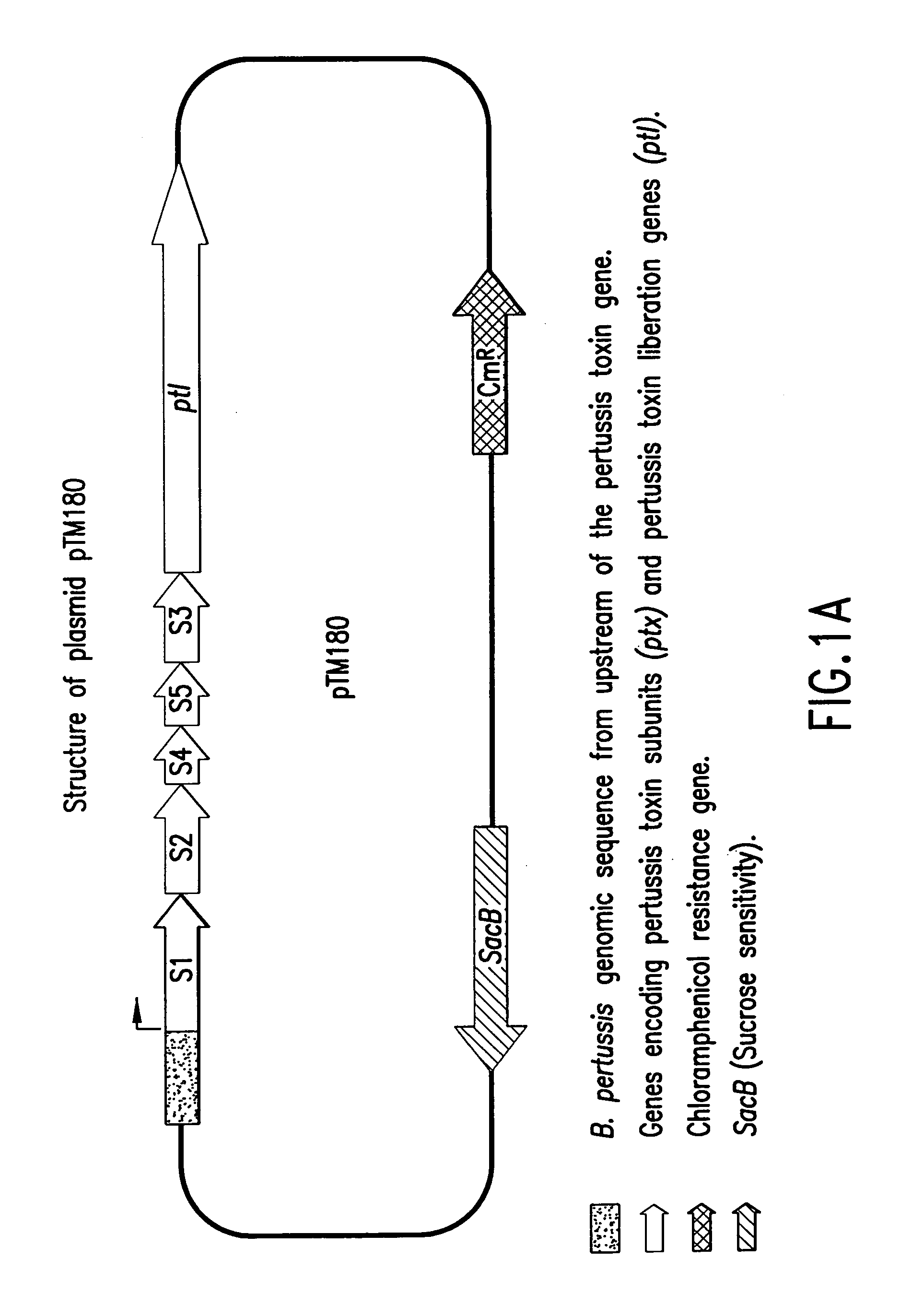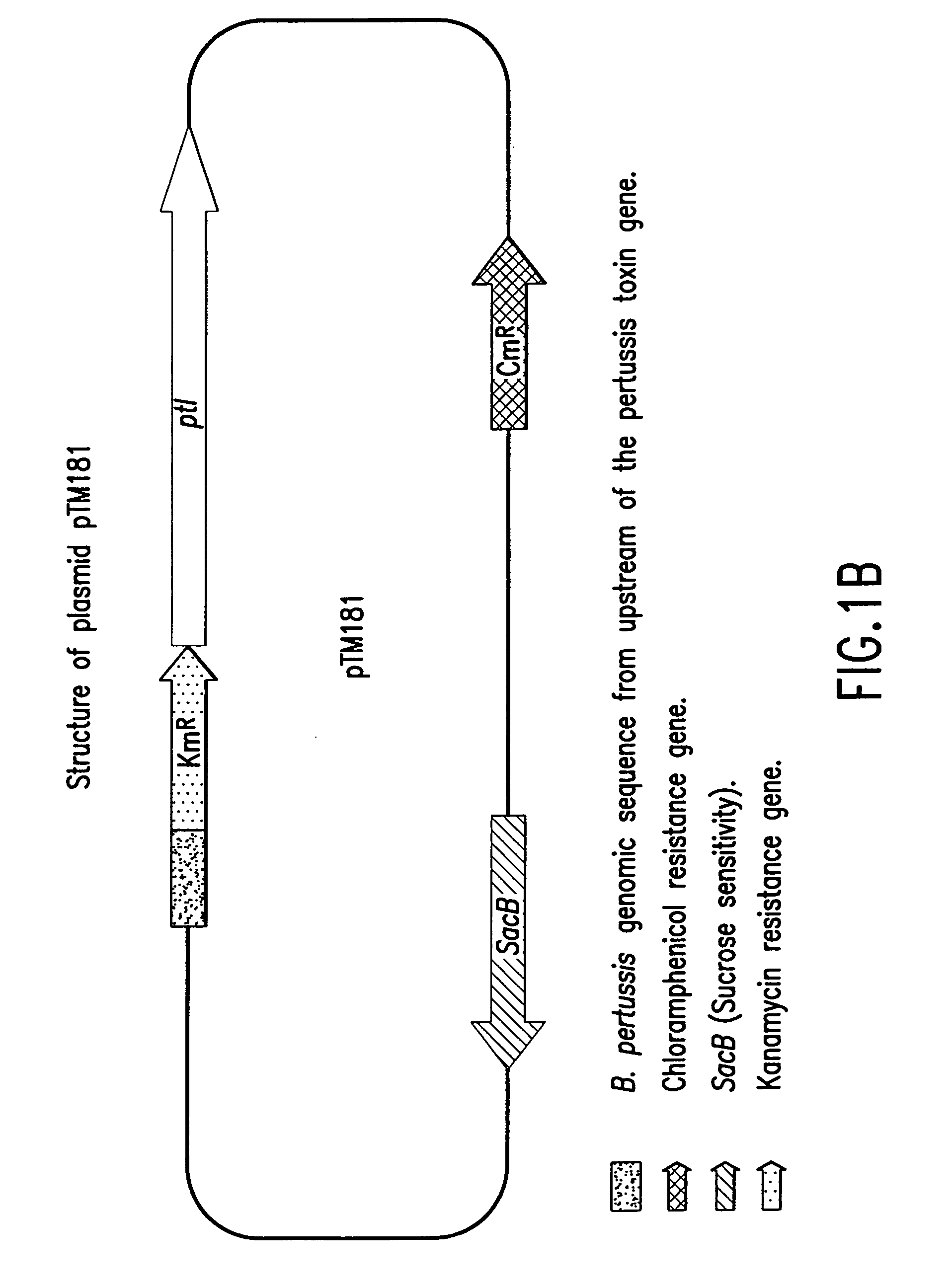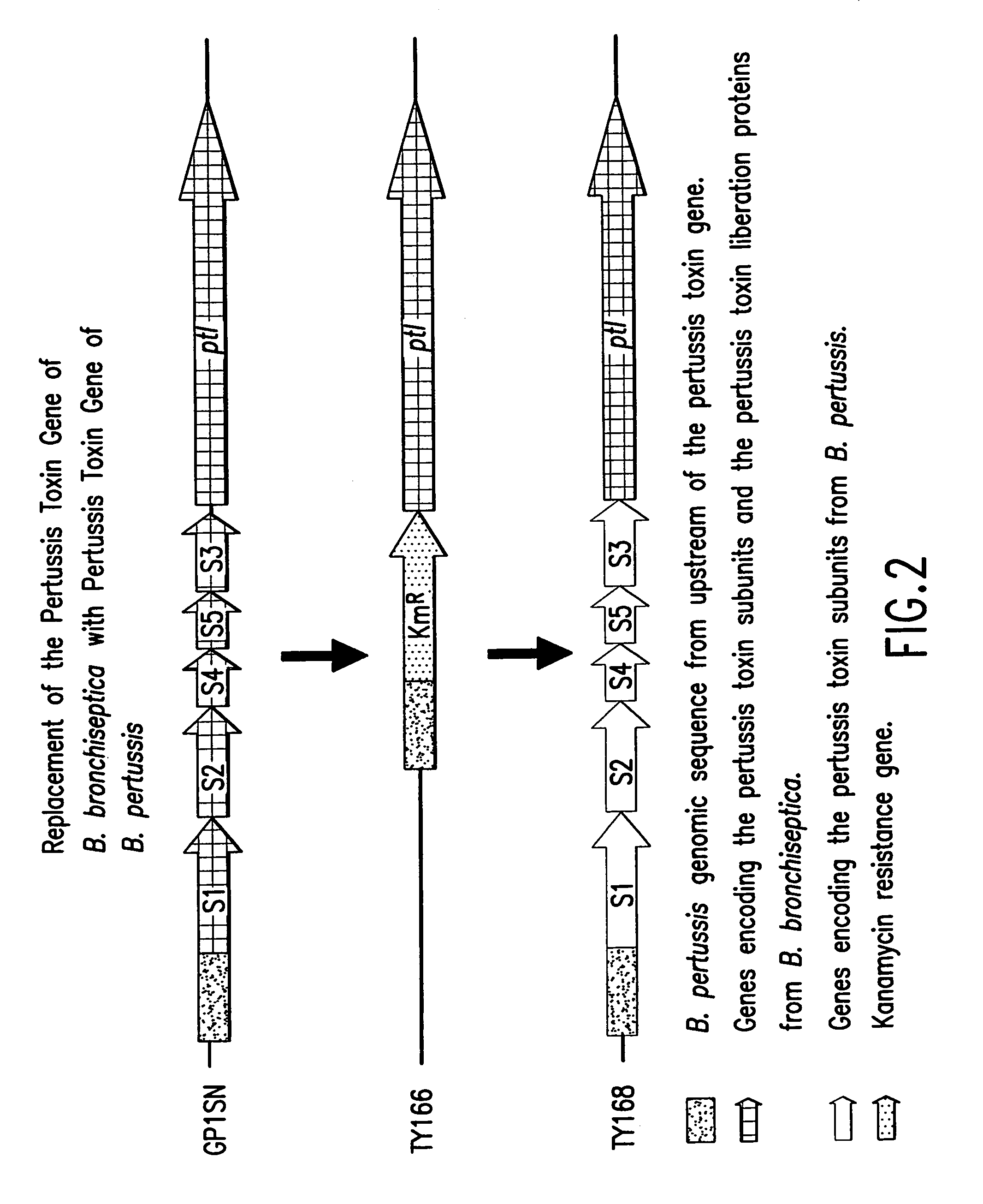High yield pertussis vaccine production strain and method for making same
a pertussis vaccine and production method technology, applied in the field of high yield pertussis vaccine production strain and method for making same, can solve the problems of reducing the administration rate of pertussis vaccines, affecting the safety of children, so as to reduce production costs, the effect of reducing the cost and increasing the ra
- Summary
- Abstract
- Description
- Claims
- Application Information
AI Technical Summary
Benefits of technology
Problems solved by technology
Method used
Image
Examples
examples
[0059]The genes encoding the B. bronchiseptica toxin in Bordatella bronchiseptica strain GP1SN were replaced with the gene encoding kanamycin resistance in a two step process (FIG. 2). First suicide plasmid pTM181 (FIG. 1B) was introduced into strain GP1SN. Isolates in which the plasmid had been incorporated into the bacterial chromosome by homologous recombination between the Bordatella DNA insert on the plasmid and the homologous chromosomal regions were identified by selection on colicin-kanamycin plates. In the second step, rare isolates in which the plasmid sequences were crossed out by an intragenic recombination to yield strain TY 166 were identified by selecting for loss of the plasmid on plates containing kanamycin and high concentrations of sucrose with subsequent screening for the loss of chloramphenicol resistance.
[0060]The Bordatella pertussis genes encoding the S1 through S5 subunits of pertussis toxin were transferred onto the Bordatella bronchiseptica through a simil...
PUM
| Property | Measurement | Unit |
|---|---|---|
| purity | aaaaa | aaaaa |
| structure | aaaaa | aaaaa |
| antibiotic resistance | aaaaa | aaaaa |
Abstract
Description
Claims
Application Information
 Login to View More
Login to View More - R&D
- Intellectual Property
- Life Sciences
- Materials
- Tech Scout
- Unparalleled Data Quality
- Higher Quality Content
- 60% Fewer Hallucinations
Browse by: Latest US Patents, China's latest patents, Technical Efficacy Thesaurus, Application Domain, Technology Topic, Popular Technical Reports.
© 2025 PatSnap. All rights reserved.Legal|Privacy policy|Modern Slavery Act Transparency Statement|Sitemap|About US| Contact US: help@patsnap.com



